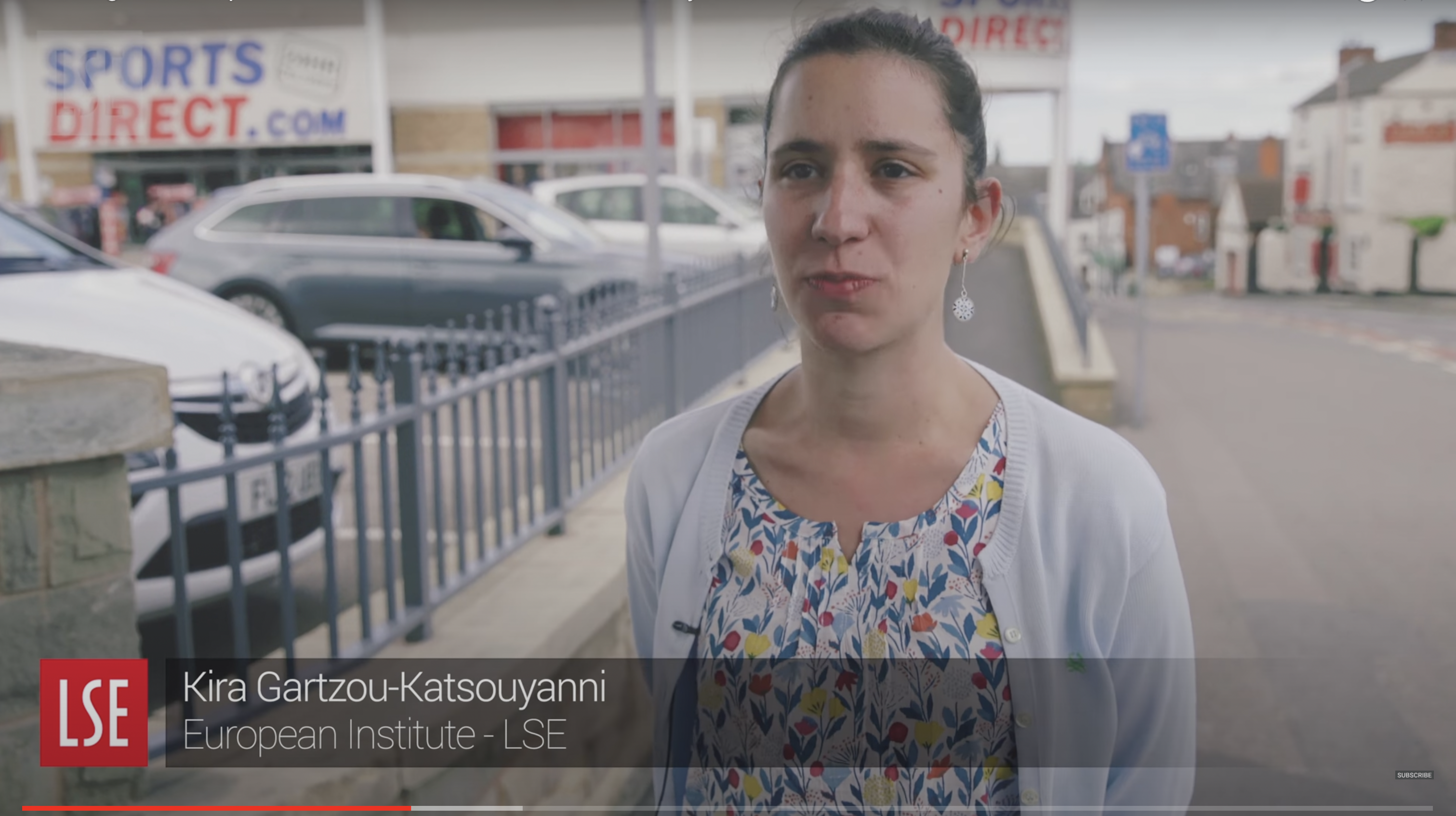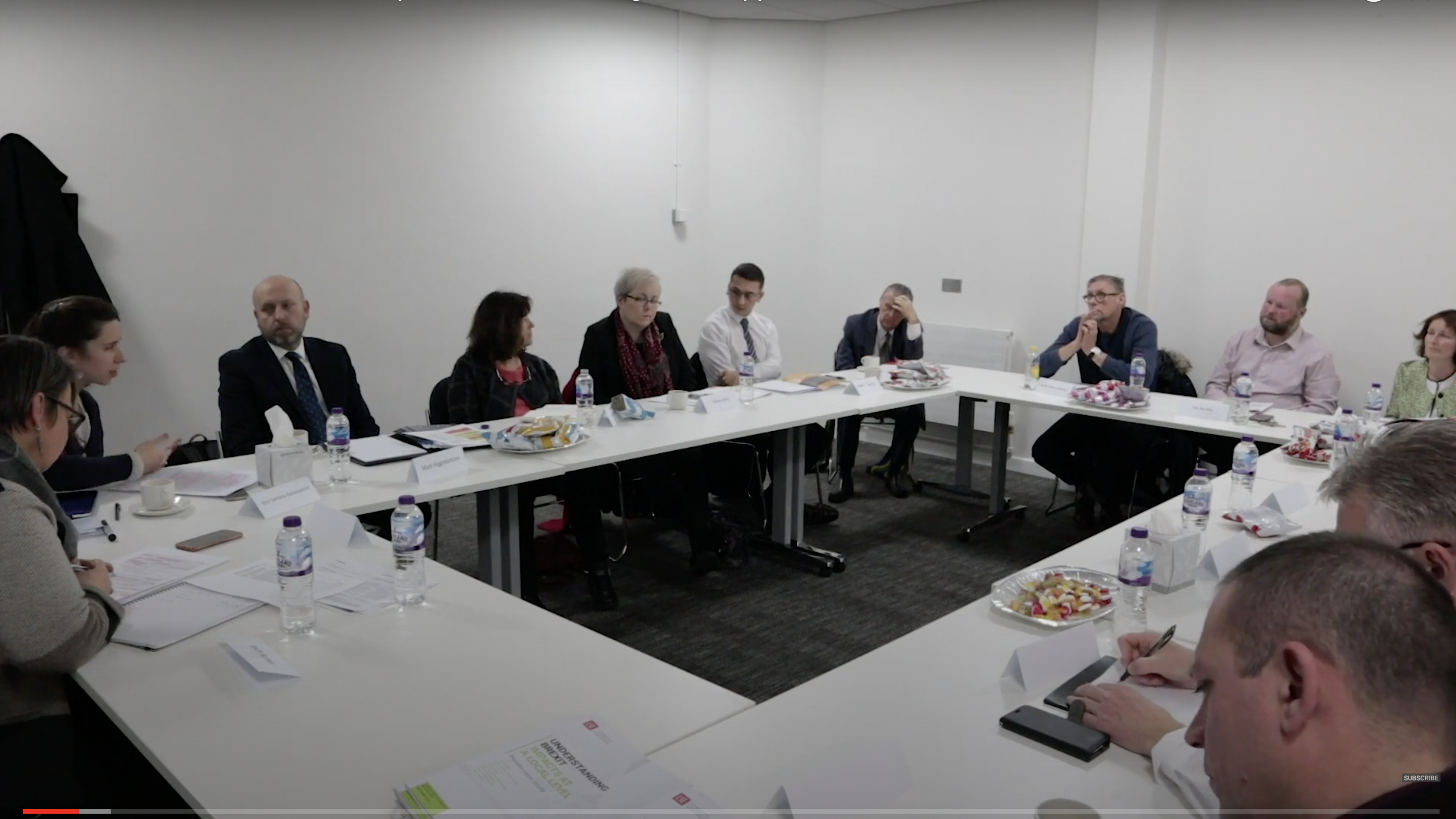Globalisation and the politics of place
This strand of my work explores how globalisation is reshaping domestic politics in European countries. Given that the economic effects of globalisation are highly uneven in spatial terms, focusing on “place” (and not just on the individual and national levels of analysis) can be a useful way to approach this topic. Rather than vieweing contemporary politics as being structured by an economic and an orthogonal cultural dimension, I am particularly interested in the ways in which traditionalist cultural attitudes often go hand-in-hand with regional economic decline in the context of globalisation. Most of my work on this topic to date has been done in the context of the collaborative project “Understanding Brexit at a local level” (see below), but recently I have been working on some new papers on the pro-/anti-globalisation cleavage in politics.
Understanding Brexit at a local level
Did local context influence voters’ electoral choices in the 2016 EU referendum in the UK? Why did people in specific post-industrial or agricultural areas vote Leave, when exiting the EU was likely to be, by most scientific accounts, economically damaging? Can theories emphasising economic factors truly contribute to our understanding of a referendum result that appeared contrary to many voters’ economic interests? These were some of the questions that motivated our research team to start working on a project about the local-level context and impact of the 2016 referendum in five British local authorities: Barnet, Ceredigion, Mansfield, Pendle, and Southampton.
Beyond those questions, we also wanted to do a little experiment: If we produced a report about the impacts of Brexit that was locally relevant, combining the results of existing quantitative studies with the evidence collected through our own field work in each local authority, would it be possible to bring Leavers and Remainers together in one room and spark a forward-looking, evidence-based discussion about Brexit within each local community?
We addressed those questions adopting a case study-based, participatory research method. Our focus on a small number of case studies enabled us to identify the mechanisms through which different causal variables operate and interrelate in the context of “place”. One of our findings was that long-term socioeconomic trajectories are intricately connected to discourses about the nature of local challenges and their solutions. Studying this link is crucial for understanding how diffuse feelings of place-based, economically induced discontent found a concrete political expression through the Leave vote.
At the same time, our participatory research approach provided us with an opportunity for iterative knowledge exchange with members of the communities in our case study areas. We visited our case study areas not only in the context of our initial fieldwork, but also after we had written our case study reports, in order to present our findings to local stakeholders and get their feedback. These occasions strengthened the quality of our data and also encouraged meaningful, forward-looking discussion among scholars and citizens as well as Leave and Remain voters.
Researchers involved in the project: José Javier Olivas Osuna (coordinator), Mary Kaldor, Diane Bolet, Alexandra Bulat, Josh De Lyon, Kira Gartzou-Katsouyanni, Kuba Jablonowski, Max Kiefel
Journal articles
Roch Dunin-Wąsowicz and Kira Gartzou-Katsouyanni (2023) ‘Geographical Dimensions of Populist Euroscepticism’, Political Studies Review
Kira Gartzou-Katsouyanni, Max Kiefel and José Olivas Osuna (2022) ‘Voting for your pocketbook, but against your pocketbook? A Study of Brexit at the local level’, Politics & Society 50(1)
José Olivas Osuna, Max Kiefel and Kira Gartzou-Katsouyanni (2021) ‘Place matters: analyzing the roots of political distrust and Brexit narratives at a local level’, Governance 34(4)
Public engagement
Documentary film about the Mansfield case study
Recording of the discussion panel that we organised on the occasion of the launch of our Mansfield case study report. The event was organised in collaboration with Mansfield & Ashfield 2020. It took place at the Mansfield Central Library on 24/1/19 and was chaired by Dr. Lynn Oxborrow.
Blog posts:
Kira Gartzou-Katsouyanni (15/3/19), “Understanding Brexit at a local level: Mansfield case study”, LSE Euro Crisis in the Press blog. The blog presents some initial findings from the Mansfield case study. It was originally published in German as an article in the journal of the Austrian Association of Cities and Towns.
Kira Gartzou-Katsouyanni, Max Kiefel and José Javier Olivas Osuna (9/3/22), “Why did left-behind communities discount the economic risks of Brexit?”, LSE British Politics and Policy blog. The blog post summarises our Politics & Society article.
José Javier Olivas Osuna, Max Kiefel and Kira Gartzou-Katsouyanni (10/11/21), “Uncovering the local factors that helped shape the Brexit referendum”, LSE EUROPP blog. The blog post summarises our Governance article.
Reports
Kira Gartzou-Katsouyanni, José Javier Olivas Osuna, Josh De Lyon, Kuba Jablonowski, Max Kiefel, Diane Bolet, Alexandra Bulat and Mary Kaldor (2018), “Understanding Brexit Impacts at Local Level: Mansfield Case Study”, London School of Economics and Political Science, London, UK.
José Javier Olivas Osuna, Josh De Lyon, Kira Gartzou-Katsouyanni, Alexandra Bulat, Max Kiefel, Diane Bolet, Kuba Jablonowski and Mary Kaldor (2019), “Understanding Brexit at a local level: causes of discontent and asymmetric impacts”, London School of Economics and Political Science, London, UK.
Max Kiefel, José Javier Olivas Osuna, Josh De Lyon, Diane Bolet, Kira Gartzou-Katsouyanni, Alexandra Bulat, Kuba Jablonowski, and Mary Kaldor (2018), “Understanding Brexit impacts at a local level: Pendle case study”, London School of Economics and Political Science, London, UK.
Diane Bolet, José Javier Olivas Osuna, Josh De Lyon, Kira Gartzou-Katsouyanni, Alexandra Bulat, Kuba Jablonowski, Max Kiefel, and Mary Kaldor (2018), “Understanding Brexit impacts at a local level: Southampton case study”, London School of Economics and Political Science, London, UK.
Alexandra Bulat, José Javier Olivas Osuna, Josh De Lyon, Kuba Jablonowski, Max Kiefel, Diane Bolet, Kira Gartzou-Katsouyanni, and Mary Kaldor (2018), “Understanding Brexit impacts at a local level: the London Borough of Barnet case study”, London School of Economics and Political Science, London, UK.
Kuba Jablonowski, José Javier Olivas Osuna, Josh De Lyon, Diane Bolet, Kira Gartzou-Katsouyanni, Alexandra Bulat, and Mary Kaldor (2018), “Understanding Brexit impacts at a local level: Ceredigion case study”, London School of Economics and Political Science, London, UK.
 From the Mansfield case study documentary film
From the Mansfield case study documentary film
 From the presentation of our Mansfield case study report at the Mansfield Central Library on 24/1/19
From the presentation of our Mansfield case study report at the Mansfield Central Library on 24/1/19

